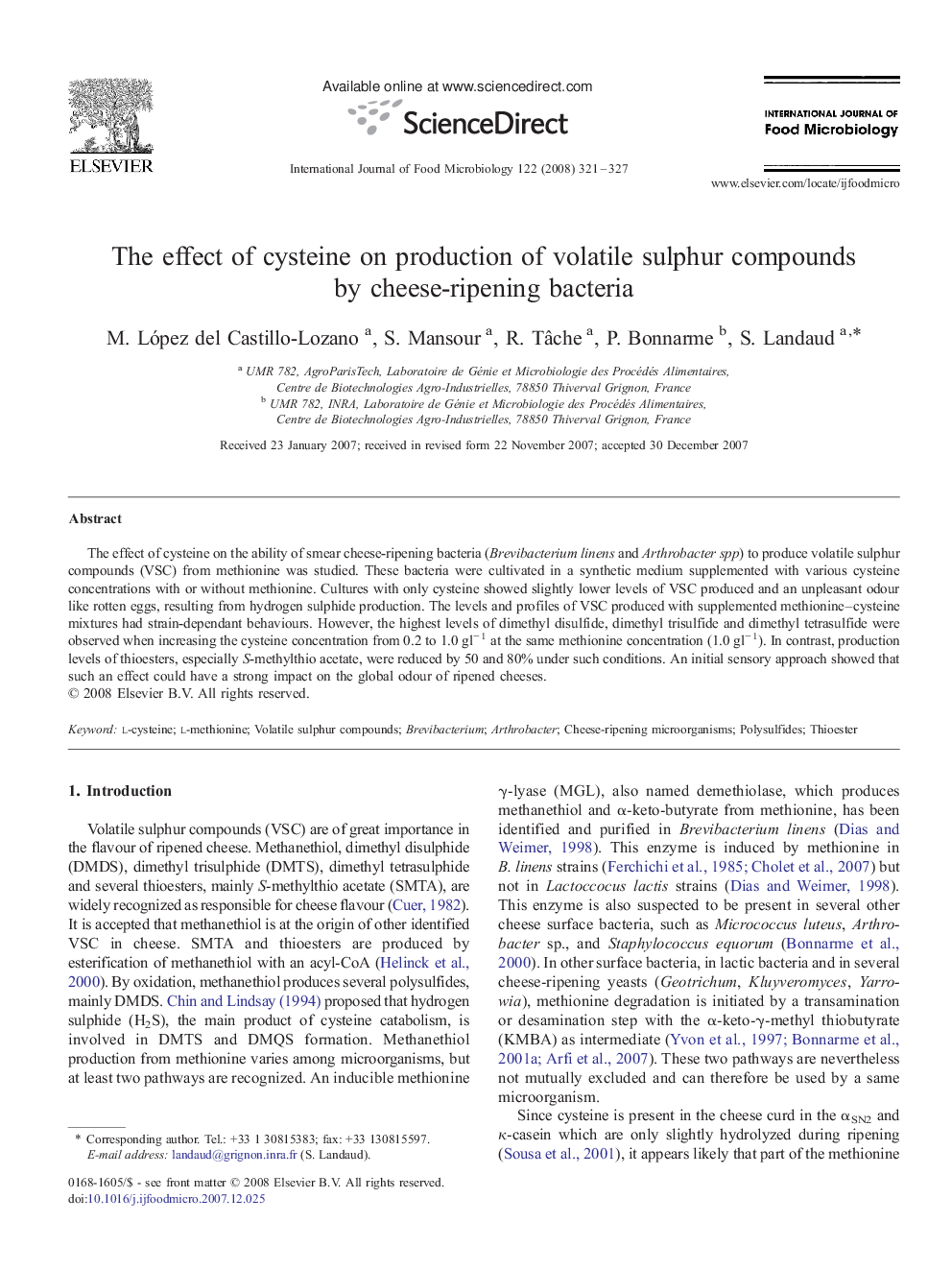| کد مقاله | کد نشریه | سال انتشار | مقاله انگلیسی | نسخه تمام متن |
|---|---|---|---|---|
| 4368784 | 1616730 | 2008 | 7 صفحه PDF | دانلود رایگان |

The effect of cysteine on the ability of smear cheese-ripening bacteria (Brevibacterium linens and Arthrobacter spp) to produce volatile sulphur compounds (VSC) from methionine was studied. These bacteria were cultivated in a synthetic medium supplemented with various cysteine concentrations with or without methionine. Cultures with only cysteine showed slightly lower levels of VSC produced and an unpleasant odour like rotten eggs, resulting from hydrogen sulphide production. The levels and profiles of VSC produced with supplemented methionine–cysteine mixtures had strain-dependant behaviours. However, the highest levels of dimethyl disulfide, dimethyl trisulfide and dimethyl tetrasulfide were observed when increasing the cysteine concentration from 0.2 to 1.0 gl− 1 at the same methionine concentration (1.0 gl− 1). In contrast, production levels of thioesters, especially S-methylthio acetate, were reduced by 50 and 80% under such conditions. An initial sensory approach showed that such an effect could have a strong impact on the global odour of ripened cheeses.
Journal: International Journal of Food Microbiology - Volume 122, Issue 3, 20 March 2008, Pages 321–327